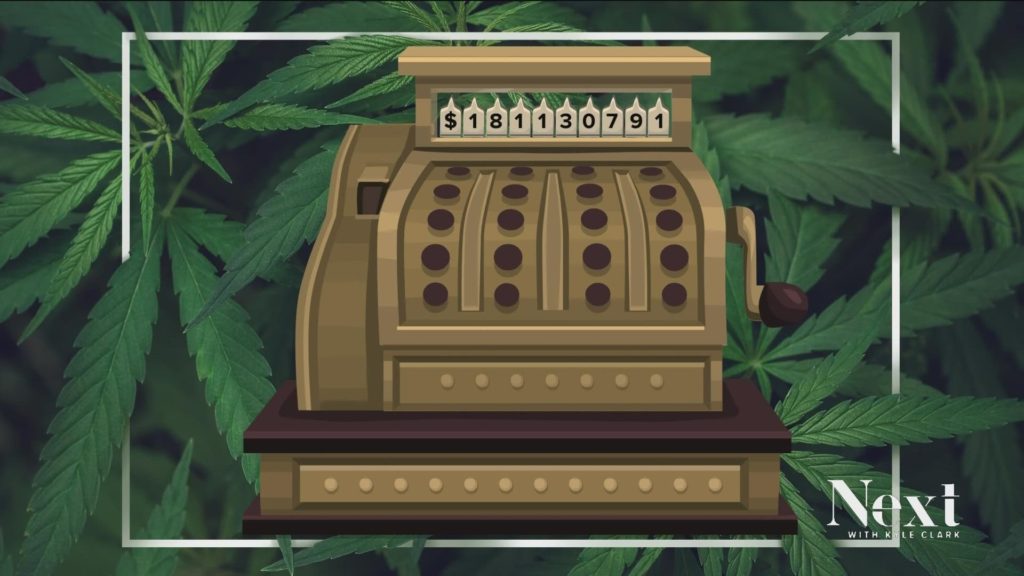9News / DENVER — Colorado’s marijuana industry knows what it’s like to feel the high, but now the buzz is wearing off. Marijuana sales have declined for more than a year in the state, threatening public programs funded by the tax revenue the sales produce.
In an industry that’s built on getting high, marijuana sales are now seeing record lows.
“Right now, the Colorado marijuana industry is going through the largest downturn that we’ve ever seen,” said Truman Bradley, Executive Director of the Wheat Ridge-based Marijuana Industry Group. “Our industry is going through big time layoffs. Thousands of people have lost their jobs and small business owners are going under. Unfortunately, I expect that to continue into the coming year.”
So why is this all happening now? It starts with supply and demand. When everyone was sent home in 2020, let’s just say there wasn’t much to do. That resulted in a big spike in marijuana sales during the pandemic. Now that people aren’t stuck at home, they aren’t buying as much weed.
“The medical market is down about 47% statewide and the recreational market is down about 20%. Those are huge, huge, numbers,” Bradley said. “To put that into perspective, that means there is a hundred million dollars less in marijuana tax revenue than there was a year ago. What that means is critical programs that are funded by marijuana tax revenue are at risk.”
But that’s just one problem.
In Colorado, the wholesale price of marijuana is at a record low. Today, it costs $658 per pound. That’s half the price compared with this time last year, when it was selling for $1,316.
“The price of marijuana is at the lowest since the recreational marijuana was legalized in Colorado,” said Andy Padilla, MSU Denver professor and chair of economics. “I believe that the decrease in price is a result of the increase of supply of marijuana.”
Revenue is also down. In September of 2022, stores made nearly $147 million ($146,880,577) worth of marijuana sales. That’s down from more than $181 million ($181,130,791) in September of 2021 and $206 million ($206,488,268) in the same month of 2020.
“What that means is when the state’s joint budget committee gets together this year to look at marijuana tax revenue, they’re going to be looking at a $100 million shortfall of marijuana tax money,” Bradley said.
Inflation is yet another potential cause for the downturn.
“With the increase in inflation, people are going to have to make choices,” Padilla said. “If we haven’t seen an increase in wages corresponding to an increase in inflation, people are going to have to make sacrifices.”
When people buy less weed, schools see less money.
Andy Stine is the Director of Capital Construction with the Colorado Department of Education. Last fiscal year, the department’s Building Excellent Schools Today program, or BEST, took in $97 million in marijuana tax money to fund grants for school construction and renovation.
“Marijuana revenue excise tax is a large portion of the revenue that comes into the program,” Stine said.
The amount of money it brings in from marijuana tax revenue will likely go down this year.
“We would have to decrease the amount of grants that we are able to offer in the next fiscal year,” Stine said.
Marijuana tax revenue funds about 100 different programs around the state. Last year Colorado collected a record $423 million in taxes from cannabis. Programs like BEST have several revenue streams funding them, but if they get less money from marijuana taxes, they won’t be able to fund all the grants.
H/T: www.9news.com



